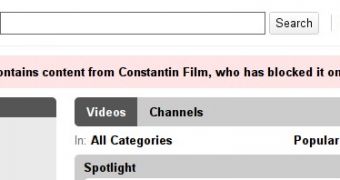Due to the nature of the site, YouTube has always had to struggle to reach a balance between protecting copyright and enabling users to let loose their creativity. The site is facing a $1 billion lawsuit with Viacom and with 24 hours worth of video uploaded every minute, it can’t possibly review each video that ends up on it, so it takes a very cautious approach.
In order to remove infringing content, it uses Content ID, a technology, which enables copyright holders to protect their works from ending up on the video site. The problem is that copyright law is a complex issue, one that humans have trouble understanding sometimes. An automated system is bound to fail, like this week’s Hitler Downfall parodies fiasco proved.
One of the most enduring Internet memes, clips showing Hitler getting exceedingly agitated over any current event you can imagine, have been popping up for years. Many of the videos are quite funny and went on to get millions of views. The problem is that the videos use a copyrighted portion of the movie Downfall. Being parodies, they should be protected from copyright claims under the fair use doctrine in the US and other countries.
Constantin Film, the production company behind Downfall, doesn’t care much for parodies, fair use, or any of that nonsense. The execs don’t like any of the clips using their content and in fact want them “all down.” Constantin Film has every right to find the clips distasteful. It has every right to get upset by the use of the movie clip. Legally though, in most countries, it would have no right to remove them.
YouTube has offered a response of sorts on the whole situation. While the blog post didn’t address the Hitler videos directly, it offered some insight on how Content ID works and how users can protect themselves against abuse. Content ID is favorable to content owners, undoubtedly, but users who believe that their work has been unfairly removed can dispute the take down. At that point, the video is restored and the content owners have to file a legal DMCA take down notification. But, as the EFF’s Brad Templeton explains, there are still plenty of problems with the system.

 14 DAY TRIAL //
14 DAY TRIAL //